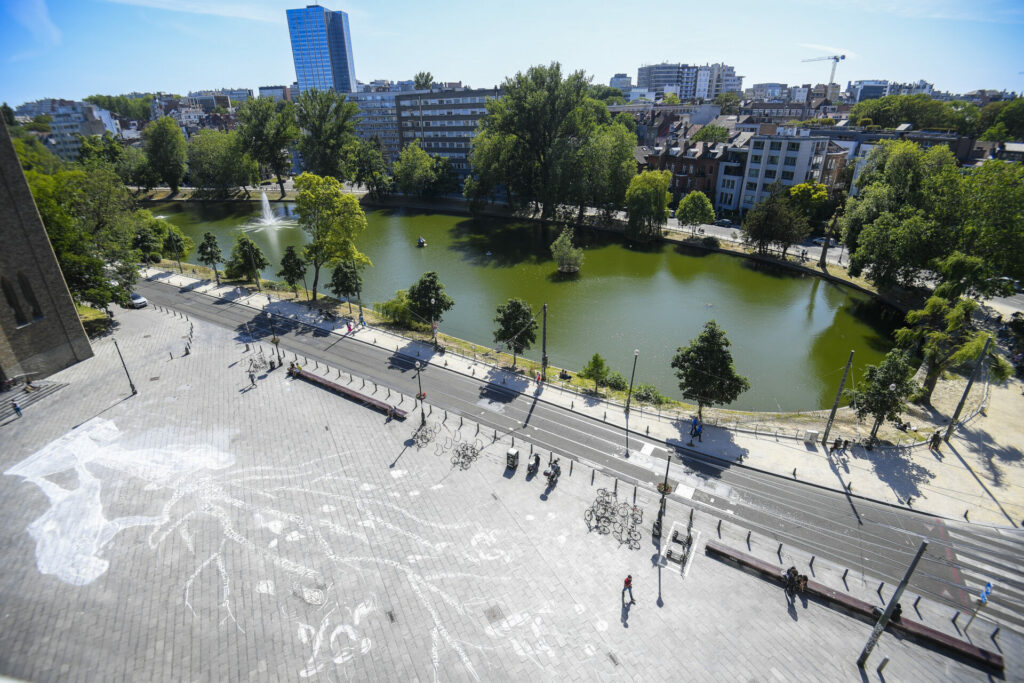Buying a house in Brussels became slightly cheaper in the first half of this year compared to 2023. But since 2019, prices in most communes have risen dramatically. Only in Ixelles – the most expensive neighbourhood – have properties become cheaper in this period.
Brussels has long been the most expensive region in Belgium to buy a house. But prices did decrease in several communes between 2023 and the first half of 2023, the latest Real Estate Barometer of the Federation of Notaries (Fednot) showed. The average house price fell to €554,137 – a 1.5% decrease compared to an average of €562,489 in 2023 and €576,576 in 2022.
"However, I would not really call this a drop," Fednot notary Sophie Maquet told The Brussels Times. She noted that although the numerical figure is lower, this should be seen as the property market correcting itself.
"The property market has been crazy for two years. The increased demand for houses with a garden or terrace during the pandemic saw prices rocket to unseen levels. People were prepared to pay top dollar and also benefitted from much lower interest rates."
But the war in Ukraine, the ensuing energy and cost of living crisis, rising inflation and high mortgage rates introduced to curb inflation dramatically slowed down this trend. "The latest figures indicate a return to 'correct' values."
Difference per commune
These factors have made buyers more hesitant, cooling demand and bringing prices down to "normal". This was most evident in the commune of Evere, where prices reached almost €486,000 last year but have since returned to around €375,000. In Saint-Gilles, average prices rose to €632,600 before returning to €570,000 – just slightly above the average price recorded in 2020.
In some of Brussels' most expensive communes such as Etterbeek, Watermael-Boisfort and Woluwe-Saint-Lambert (where properties are more likely to have gardens or terraces), prices also corrected. In the slightly cheaper communes of Anderlecht and Molenbeek-Saint-Jean, prices remained largely stable, sitting around €370,000 and €357,400, respectively, in the first half of 2024.
Maquet noted that it is mainly the cost of semi-detached or detached houses that went down while the cost of flats has remained relatively stable (€270,888 in 2021, €281,229 in 2022, €280,520 in 2023 and €284,775 in June 2024). This is comparable to the national average cost for a flat (€266,941).
"This discrepancy between flats and houses can be explained by the fact that houses in Brussels are very rare," Maquet said. "They are a niche property and demand very quickly outstripped supply in recent years."
Uccle houses up by €164,000
For this reason single-family homes are still overpriced in Brussels, with the costs far exceeding those seen in 2019. The average cost of a house in the region has risen by around €90,000 since 2019 with the most significant rises in Saint-Gilles (more than €100,000 more expensive), Watermael-Boisfort (up by €115,000), and Uccle (around €164,000 more expensive).
For apartments, the biggest price increase between 2019 and 2024 was €68,500, seen in Forest.
Only in Ixelles, which was the most expensive Brussels commune in 2023, were prices lower than in 2019 (going from around €713,600 to almost €680,000 in the first half of this year).
Maquet cautions that is skewed by the nature of property in the commune: "The problem with Ixelles is that there are some normal houses, but there are also so many properties that are completely overpriced, costing several millions. So if two properties costing €4 million are sold, the average price explodes. Maybe that expensive property just hasn't been sold yet this year."
The average price of a house in Belgium currently stands at €325,204. In Flanders, the average price of a house rose by 1.1% in the first half of the year to €362,647, making it the second most expensive region.
In Wallonia, the price of a house was €236,265 (-1.8%). Maquet predicts the announced reduction in registration duties on a first home (to 3% from 2025) will likely slow down transactions in the region over the next six months as buyers wait for the rate cut to take effect. This could see a further, temporary drop in prices.

